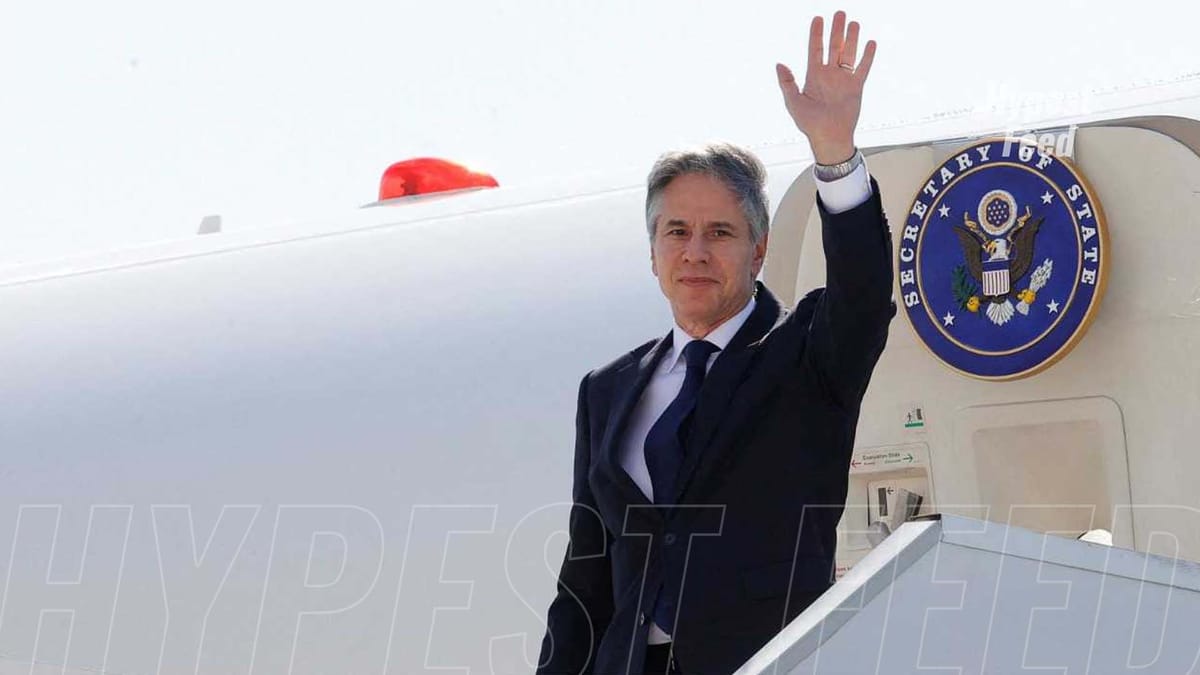In the vast halls of Beijing's Great Hall of the People, Chinese leader Xi Jinping and top American diplomat Antony Blinken engaged in discussions aimed at reshaping the narrative between their nations. Against the backdrop of a three-day visit by Blinken, Xi emphasized the need for a shift in perspective, advocating for a partnership rather than adversarial relations between the US and China.
Addressing the core issue of mutual trust and understanding, Xi expressed a desire for the United States to adopt a positive stance towards China's development, envisioning a future where both nations collaborate for mutual success. He highlighted the importance of resolving fundamental differences to pave the way for improved bilateral relations.
However, tensions loomed beneath the surface as China reacted strongly to what it perceives as American efforts to stifle its progress. Actions such as US restrictions on technology exports and investment in high-tech sectors have exacerbated friction between the two powers. Moreover, the recent legislation signed by President Joe Biden targeting TikTok, a move criticized by Beijing, underscores the ongoing challenges in the relationship.
Blinken, for his part, reaffirmed America's commitment to dialogue and responsible management of differences to prevent misunderstandings or miscalculations. He cited recent collaborative efforts as signs of progress, including the restoration of military-to-military communications and joint deliberations on the future of artificial intelligence.
Prior to this high-level meeting, Blinken engaged in extensive discussions with Chinese Foreign Minister Wang Yi, characterized as substantive and constructive by both parties. As the talks concluded, the lingering question remains whether these diplomatic efforts will yield tangible improvements in the complex relationship between the world's two largest economies.
As the high-stakes discussions unfolded between the top diplomats of the world's two foremost superpowers, Chinese Foreign Minister Wang Yi underscored the precarious balance between cooperation and conflict in the US-China relationship. Against the backdrop of mounting tensions, Wang posed a pivotal question to his American counterpart, Secretary of State Antony Blinken, emphasizing the critical juncture at which both nations stand.
In his address at the Diaoyutai State Guesthouse, Wang articulated the binary choice confronting China and the United States: embrace stability and progress or risk descending into a detrimental downward spiral. He underscored the imperative for sincerity and capability in navigating the complex dynamics of bilateral relations, urging a concerted effort to uphold international cooperation for the collective benefit of all nations.
Behind closed doors, Wang condemned what he perceived as relentless efforts by the US to stifle China's economic growth and technological advancement, accusing Washington of engaging in unfair competition and containment tactics. He highlighted the need for mutual understanding and clarity on areas of disagreement, echoing Blinken's call for transparent dialogue to address diverging interests.
Blinken's visit to China, the second within a year, signifies ongoing efforts to bridge the gap between the two nations amidst simmering geopolitical tensions. Building upon the foundation laid by the Biden-Xi summit in California, both sides reiterated commitments to advance cooperation on various fronts, including counternarcotics efforts, military communication, and discussions on artificial intelligence.
However, amidst the diplomatic overtures, underlying concerns persist regarding China's support for Russia, its assertiveness in the South China Sea, and its stance on Taiwan. The US has raised apprehensions about China's purported backing of the Russian defense industry, which Washington claims fuels the ongoing conflict in Ukraine.
Moreover, contentious issues such as Taiwan's status and regional stability continue to strain US-China relations. Wang reiterated Beijing's staunch opposition to any interference in the Taiwan Strait, labeling it as a non-negotiable red line. China's stance on Taiwan underscores its broader concerns about US engagement in the Asia-Pacific region and its defense alliances with regional partners.
As the diplomatic exchange unfolds, both nations grapple with a delicate balancing act, navigating between cooperation and competition in a rapidly evolving global landscape. The outcome of these deliberations carries far-reaching implications for international relations and the geopolitical order in the 21st century.



Member discussion: